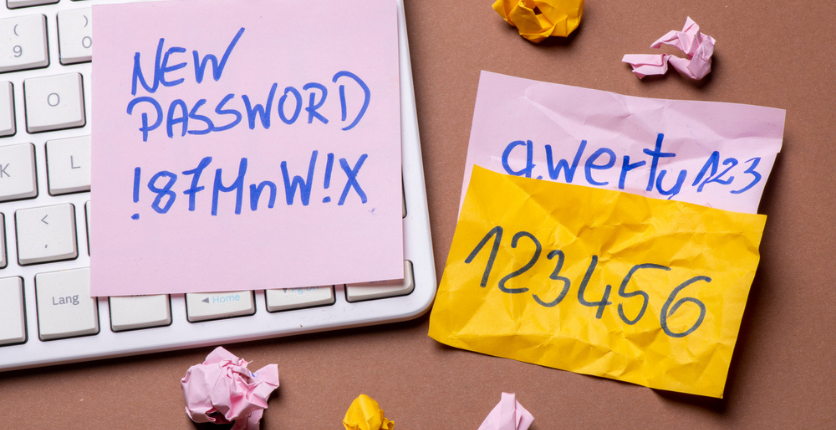Did you hear about the latest on how to avoid a bank scam? Send $200 and we’ll email the information to you.
Of course your battle-hardened, highly intellectual, military-trained mind will never fall for such a simple scam. Then again, you’d be wrong.
Recent scams have not only affected the elderly who are not IT-savvy. They have even bamboozled doctors and lawyers who fell for the foreign-boyfriend-adores-me hustle, and confounded successful businessmen, suckered by photos of women whose looks would give even a commando a nosebleed. In other words, anyone can be fooled.
So, what are the scams that you should be aware of? Let’s start with the most common one – the type that recently gave OCBC Bank a massive headache – and that would be…
A phish tale

For this, scammers use SMS texts and emails to trick people into giving personal information, like passwords, NRIC and account numbers, so as to access your bank and financial accounts.
Unfortunately, this scam works, and has hooked thousands of innocents. Phishing emails and texts usually look like they are from companies you already trust. They fool you into clicking on a link and… you’ve got phished!
So be extra careful. Inspect thoroughly, especially the fine print. The more mistakes in the text you see, the more likely it’s a scam. Remember what the experts say: If an offer looks too good to be true, it probably is. For more information on phishing, check out Scamshield or Scamalert.
Over and under

If you’re selling stuff or services online, you need to beware of the overpayment scam. For this fraud, a scammer sends you a counterfeit cheque for more than the amount owed. When you contact the crook about the difference, the scammer will tell you to deposit the cheque in the bank and wire the difference back to them.
Unfortunately, since the cheque is as fake as a three-dollar bill, you’d be in a heap of trouble pretty soon. So use better judgment. If something doesn’t feel right, don’t act on anything until you do a thorough check-up.
Good cheque turns bad
Some victims receive a cheque in the mail that they aren’t expecting. It usually passes off as a rebate or refund. Well, chances are you’re being double-crossed into entering into a legally binding contract by signing the cheque and cashing it.
Hustlers use such tactics to get you to authorise things like memberships or loans that can cost you the amount of a Leopard battle tank. This is because they are counting on you to blindly cash in the cheque. So, be wary of cashing in any rebate or refund you weren’t expecting. Inspect it thoroughly, going through the fine print.
A job made in heaven?

The employment scam is another common way hoaxers try to gain access to your financial accounts. They promise guaranteed work in exchange for a fee. They also ask for your bank account information – supposedly to send your commissions.
Job scams can easily find their way to you via emails, by phone or even snail mail. Job websites may also unknowingly post job offers that turn out to be scams. For legit job openings for NSmen, check out www.safra.sg/jobs-for-nsmen
Cheque this out
Another banking scam preys on the compassion and generosity of people. Scammers may ask if you can cash a cheque for them. They may say that they don’t have an account at the bank but desperately need the money.
Out of your good heart, you deposit the cheque and take cash from your own account to give the person. The cheque clearing process usually takes several days, so, eventually, when it doesn’t clear, you are caught with your pants down. Never do this unless the person is close to you.
The government comes a-calling

Another common bank scam is when someone pretends to be a government official. The scammer calls to claim that you’ve received a voucher that requires payment of fees so that they can process it. Or the scammer may threaten you with jail time if you don’t pay the outstanding amount.
The reality? The Singapore Government will never ask you to do such a thing. If you’re sent anything that requires an up-front fee, it’s a con job. The same goes for offers that require bank account information in order to redeem or claim them.
And the latest? A new type of scam that tricks people into scanning Singpass QR codes sent via SMS. These lure victims with the promise of monetary rewards in return for completing a survey, then dupe them into authorising transactions via Singpass, which give scammers access to all sorts of online services.
To learn more about such shams, check out the Singapore Police Force site.
Uncharitable acts
Scammers also like to make use of people’s kindness. Innocents are contacted for donations to a charity or cause. Some crooks disguise the phone number, so it shows up as local on your caller ID.
So, do yourself a big favour: Be proactive in managing who has access to your bank accounts. Because scammers will find the smallest loophole for an opportunity to expose any vulnerability related to your banking.
Want more articles like this, and other lifestyle content right in your inbox? Sign up for the eNSman Newsletter – you don’t need to be a SAFRA member to subscribe – and never miss another story!
Images: SPH Media Ltd







